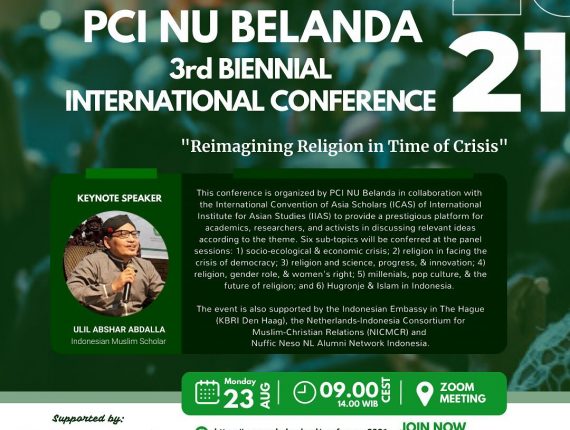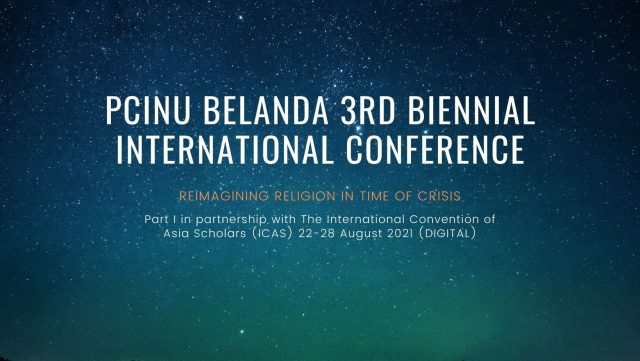
For the opening program of the conference and the acceptance abstract announcement click here.
BACKGROUND
Our contemporary language has seemed to have lost the dimension of imagination, leaving us impoverished and yearning for something more gratifying. What we call imagination is a central ingredient in any religious experience and the proper use of the imagination saves religion from being either a mere system of rational statements on the one hand or an unsystematised mélange of experiences on the other. (The Educated Imagination, Northrup Frye 1964)
Imagination is the ability to form pictures and simulate novel objects, sensations and ideas in the mind. It is the act of apprehending the power of events by way of their shapes, forms, and emotional authority so that the ordinary events of life are held in some accountability to a vision of truth. A work of the imagination is inherently an untruth, yet it is one that reveals a truth. (Valois, 2015). In a real sense, the principle use of imagination is to inform and vitalize human life. Furthermore, imagination is a necessary ingredient in perceiving our sense of the future.
For the past year, Heaven has given us to live in interesting times; we are still weighed down by the gravest global crisis in many decades; and imagination may help us to accept the world as it is, in its grandeur and misery, its beauty and its cruelty and consider what God might mean by this.
A crisis, krisis (from the ancient Greek) or judgment refers to an unexpected situation or a threat that affects an individual, society and the natural world. The Greek Orthodox Church uses the term when it talks about the Final Judgment when sinners go to hell, but the virtuous end up in heaven. The Chinese have a similar concept: The characters for crisis combine parts of those for danger and opportunity. In Islam, Quran mentions that Allah will send trial upon mankind; We will certainly test you with a touch of fear and famine and loss of property, life, and crops. Give good news to those who patiently endure (Al-Baqarah:155).
However, could religion offer a unique window to understand how to manage a crisis?
The COVID-19 crisis has brought into sharp focus the delicate relationship between people and nature. The natural world is madly ravaged and violated by human beings; every other species cringes from us—humans—as ecosystems die; our product-addiction is murdering Mother Earth; the financial system is increasingly parasitical upon the poor (panel 1).
The growing crisis of authority in the Muslim world of the past two hundred years—the colonial period—and the crisis of democracy are difficult to ignore. It is a crisis set in motion by the challenges of Western domination, intensified by those of globalisation, and exacerbated by Muslim attempts to resist them. In the context of Indonesia, the Dutch colonial policies still linger in the heart of the most populous Muslim country in the world (panel 2 & 6). Science comments that the pandemic was predictable, that pandemics will undoubtedly happen again; how we can prevent future health emergencies and mitigate their impact, and why does religion matter? (panel 3). How to deal with the ever-present inequality and injustice practices toward women? (panel 4). The fast growth of the young demographic population in Muslim majority countries will undoubtedly set the contours of the future of Religion in the coming decades (panel 5).
In an age of the triumph of grandiloquence, the substitution of statistics for facts, the exaltation of information over meaning, and the erosion of a sense of the future, the role of the imagination and its uses in our common life, particularly religion, needs our continuing attention.
This conference is organised by the Special Branch of NU for the Netherlands (PCI NU Belanda) in collaboration with The International Convention of Asia Scholars (ICAS). The conference aims to bring together scholars, researchers and activists to discuss relevant ideas concerning the topic and sub-topics of the conference.
PROGRAMMES
The International Conference is one among the series of events of PCI NU’s 3rd Biennial Conference. The detailed programmes are as follows:
1. Religious thematic workshop (Bahtsul Masa’il al-Mawdhu’iyyah) and General meeting of Special Branch of NU for the Netherlands
Date and Venue: 22-23 August 2021 at Al-Hikmah mosque, The Hague
2. Academic Events
The International Conference will be divided into two parts:
• Part I, the digital conference (incl. hybrids session with a handful of onsite attendees)
Date: 24-28 August 2021
This event is in collaboration with https://icas.asia/
• Onsite in 2022.
The details of part II is yet to be determined.
Date: t.b.a
CONFERENCE PANELS
Six sub-topics will be conferred at the panel sessions during the conference. The committee is currently putting up a request for academic papers or articles based on the topics as listed below:
- Religion in socio-ecological and economic crisis
- Religion in politics and law: how to reactualise religion in facing the crisis of democracy
- Reharmonising religion in science, progress and innovation
- Religion, gender role and women’s Right
- Millennials, pop culture and the future of religion
- Hurgronje and Islam in Indonesia: between legacy and controversy?
The submitted papers will be peer-reviewed. The author of the selected work will be invited to present it at the conference.
ORGANISATION
• The International Conference is organized by PCI NU Belanda in cooperation with the Indonesian Embassy in The Hague, The International Convention of Asia Scholars (ICAS), NL Alumni Network Indonesia, Al-Hikmah Mosque The Haque and PPI Belanda.
• The six-panel sessions are co-organised and supported between PCI NU Belanda and Netherlands-Indonesia Consortium for Muslim-Christian Relations (NICMCR).
FURTHER INFORMATION
Further information regarding this series of activities can be accessed from the conference’s website and the contact persons as follows:
• Website: https://www.nubelanda.nl/conference2021
• Email: [email protected]
• Social Media: @nubelanda
• Contact person(s) : Dawam Multazam (WA +62 852-3095-0123). Zaimatus Sa’diyah (WA +31 6 12492897)
















